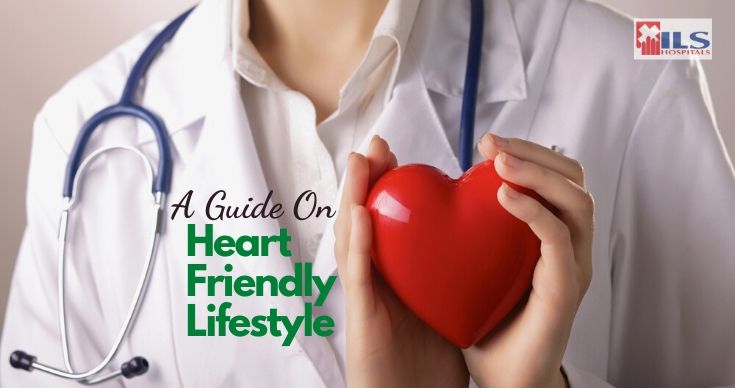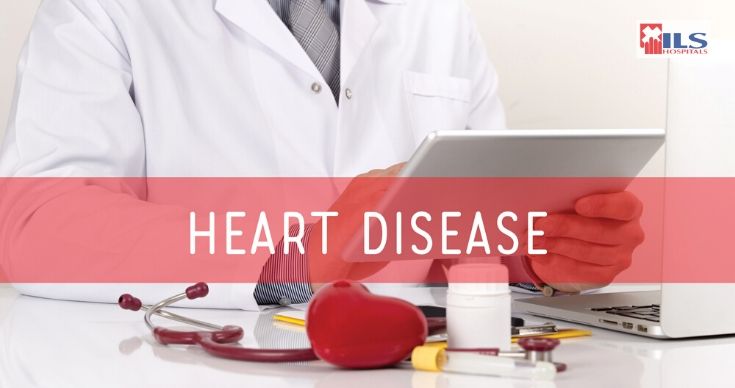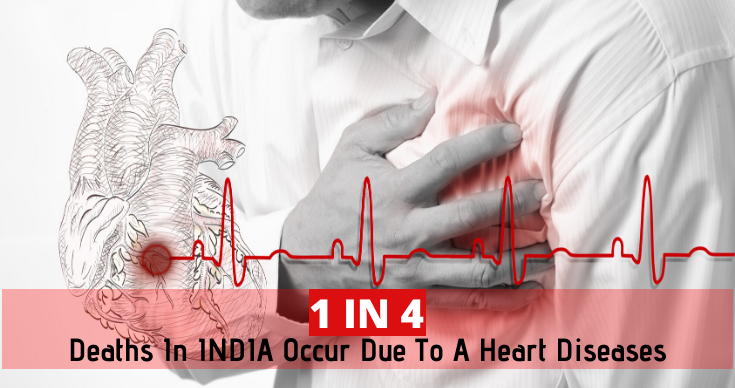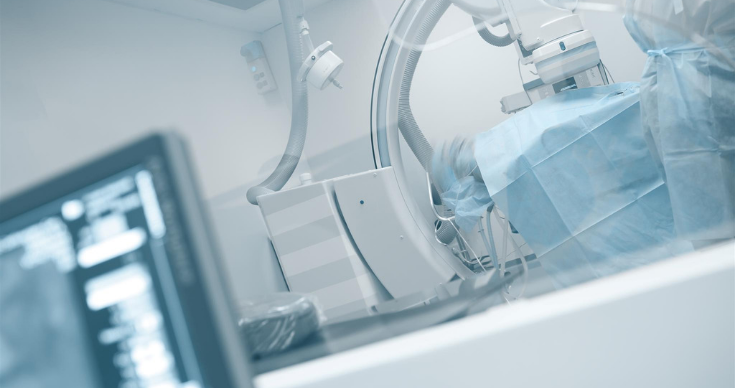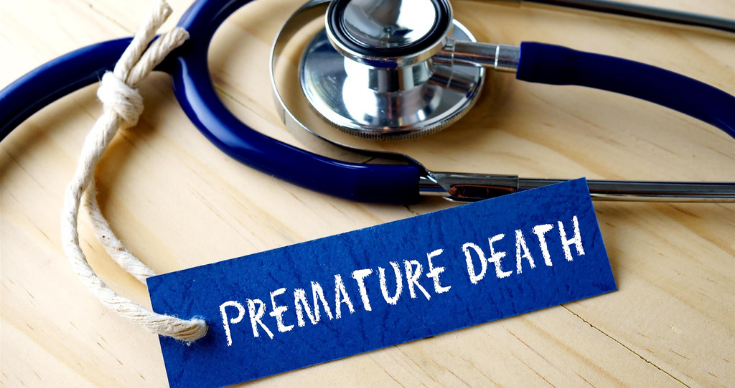ILS Hospitals’ Guide On A Heart-Friendly Lifestyle
Cardiovascular diseases are on the rise in our country. It’s of paramount importance to keep your heart fit and healthy.
ILS Hospitals, one of the best hospitals in Kolkata and Agartala cares for your heart and would like to guide you on having a heart-friendly lifestyle.
Consume a highly nutritious diet
Eating a nutritious diet is not only good for your heart but also for your entire body. Consume lots of whole grains, fruits, vegetables, legumes, lentils, seafood, poultry, dairy, nuts, seeds, and so on.
Avoid unhealthy foods
Some foods are not good for your heart – salty, sugary, fried, and fatty foods. Either avoid or limit their consumption. White flour or maida is strictly not recommended for a healthy heart.
Be physically active
Major reason for heart ailment is due tounhealthy lifestyle. Shun your sedentary lifestyle and involve yourself in favourite physical activities. Get into some sports, dance, do aerobics or swimming.
Stay away from stress
We live in a stressful world and it is needless to say that stress causes you more harm than you can imagine. Alleviate stress by practising stress-busting techniques, like listening to music, singing, painting, reading, creative writing, spending time with your pet, do yoga and meditation.
Quit unhealthy habits
In the long run, your unhealthy habits can prove detrimental to your heart. Some unhealthy habits like smoking, excess alcohol consumption, taking drugs, sleeping late at night, getting angry on trivial issues, etc.
Get regular medical check-ups
You need to keep your blood sugar and blood pressure levels at check. For that, you must get medical check-up on a regular basis. Visit a cardiologist annually to ensure that your heart remains healthy.
For any cardiac or medical emergency, visit ILS Hospitals in Kolkata and Agartala.
Signs Of Underlying Heart Disease By The Best Heart Hospital In Kolkata
Cardiovascular conditions are very common in India. We’ve discussed why in this blog: Why Are Indians So Vulnerable To Heart Diseases? Every underlying disease show tell-tale signs for the individual to observe. If the individual observes and takes prompt action then there’s a chance of an effective proper treatment.
The heart is a vital organ that helps in purifying the blood and supplies the body with oxygen and other nutrients. As per expert cardiologists, many patients ignore the body’s signals of underlying heart disease at the crucial initial levels. So, ILS Hospitals, one of the best heart hospitals in Kolkata and Agartala will enlighten you about the signs that indicate an underlying heart disease.
Chronic tiredness
Fatigue after any laborious activity is understandable but constant fatigue when you do not live an active lifestyle is a matter of concern. Chronic exhaustion can indicate towards an underlying cardiovascular condition.
Shortness of breath
Breathlessness can happen due to various reasons. Shortness of breath after climbing forty stairs makes sense, otherwise, breathlessness for no apparent cause is a medical emergency.
Chest pain and discomfort
Chest pain accompanied by shortness of breath can be a sign of serious cardiovascular condition. Immediately visit the medical emergency room of your nearest hospital.
Irregular heartbeat
Heart palpitations usually happen after a vigorous workout but that does not mean it is not associated with any medical condition. Observe your heartbeat and visit a cardiologist if you have frequent heart palpitations.
Unusual sweating
Cold sweats are not normal. They can hint at an underlying heart disease.
Swollen feet
If you have swollen feet and ankles, consult a medical professional for timely diagnosis and treatment.
Unexpected body aches
Body aches that are sudden and without any reason should not be overlooked. Unexpected body aches can be due to an insufficient supply of blood to the cardiac muscle.
If you encounter the aforementioned signs in your body, do not delay professional medical supervision. Visit ILS Hospitals, one of the best heart hospitals in Agartala and Kolkata to get proper diagnosis and treatment from our expert cardiologists.
Why Are Indians So Vulnerable To Heart Diseases?
We only have one heart and it’s our sole responsibility to take the best care of our heart to make it healthy and keep it in good physical condition. Sadly, there’s an incessant upsurge in heart-related conditions among Indians.
The question that comes to our mind after knowing this fact is why Indians are more susceptible to heart diseases and cardiac emergencies than any other ethnicity? Today, we will talk about 6 reasons why more people are suffering from heart-diseases at an increasing rate in the Indian sub-continent.
1. Chronic stress and hypertension:
Our modern lifestyle is comfortable but stressful. People are constantly stressed about their career, daily commute, personal life and financial conditions. Constant stress is the supreme cause of hypertension or high blood pressure. Healthy blood pressure for an average human is 120/80 mmHg. To manage stress, you should do the following things
– Maintain healthy relationships
– Participate in physical activities
– Eat clean and healthy food
– Get adequate sleep every night
– Practice relaxation techniques.
2. Unhealthy lifestyle choices:
We all know that an unhealthy lifestyle does not benefit our body but still we indulge in them then and now. An unhealthy lifestyle is a lifestyle in which you have harmful habits like smoking, consuming alcohol, eating junk and fast food, and being physically indolent. Take an oath that you would not choose or try to avoid this afore-mentioned lifestyle for yourself.
3. Diabetes:
Diabetes has become a common disease in India and that leads to many cardiovascular diseases. Getting diabetes treatment is paramount as uncontrolled diabetes cause impaired blood vessels of the heart and other vital organs.
4. Obesity:
Indians are getting obese day by day due to various reasons. Many people are suffering from class 3 obesity which can be treated with a bariatric or weight loss surgery.
5. Congenital heart defects:
Many children in India are born with heart abnormalities that lead to serious cardiovascular conditions if not timely diagnosed. It is one of the main factors of increasing heart diseases in our country.
6. Genetic makeup:
Many heart diseases are hereditary and nobody can undo it. Your genetic makeup determines the risk of you or your children inheriting heart-related conditions.
Regrettably, we Indians match the criteria of all the above-mentioned points, and that leads us to be more vulnerable to cardiovascular diseases. If you’ve any heart-related conditions you can easily come to ILS Hospitals, one of the best heart hospitals in Kolkata for your diagnosis and treatment. We will provide you with proper medical advice appropriate for your condition.
Possible Reasons For Fast Heartbeat That You Should Watch Out For
Do you often feel anxious due to having a fast heartbeat?
Before you panic assuming it to be a cardiac emergency, take a minute out and breathe. First, you need to know what exactly implies having a fast heartbeat. Heart function is measured in the number of times it beats in a minute. Between 60 to 100 is assumed to be normal and any heart rate above 100 beats/minute is a fast heartbeat or medically termed as tachycardia. As per cardiologists from best heart hospitals, there can be many reasons for the fast heartbeat and today, we will list the most common reasons for the same. So, let us start.
1. You Have A Heart Condition
The most obvious reason for the fast heartbeat is the presence of a heart condition. Let it be an arrhythmia or some medicine you are taking to keep your heart healthy; heart problem often leads to either tachycardia or bradycardia (a condition in which heartbeat is below 60).
2. You Are In Stress
In case you are stressed due to personal or professional issues, it reflects on your health immensely. Stress, anxiety and panic attack can lead to having a racing heart.
3. You Are Physically Exhorting Yourself
In case you are exercising, riding a bicycle or climbing stairs, you are exercising your muscle. These vigorous movements demand more oxygen and the heart has to pump extra beats to meet this demand. As a result, you have a faster heartbeat.
4. You Are Consuming Too Much Caffeine
Caffeine if taken in surplus amount can release adrenaline. So, let it be hot brewing coffee or caffeinated cold beverages, having too much caffeine in your body can make your heart race.
5. You Are Sleep Deprived
It is recommended to have a sleep of 6 to 8 hours, each day. Getting inadequate sleep can cause fatigue and excess adrenalin release, which in turn leads to a faster heartbeat than usual.
6. You Are Down With Cold Or Fever
In case you have a cold, fever, sneezing or coughing, you are likely to have an elevated heart rate as well. When the immune system tries to cope up with mild cold and infection, it works extra hard and thus the heart beats more than usual.
7. You Are Pregnant
In the case of women, being pregnant demands a lot physically as they nurture the growing baby for nine months. Though it is completely normal for pregnant women to have a faster heartbeat, it is crucial to keep tabs on it from time to time.
8. You Have Anemia
Anemia is a condition in which the blood does not carry oxygen properly throughout the body. Thus the heart works much exhaustively to carry oxygen and leads to an uplifted heartbeat.
So, in case you too are having a persistent fast heartbeat, evaluate the reason at the best heart hospitals.
A Brief Introduction To Cardiac Catheterization
The heart is a wonderful organ that performs the crucial function of pumping blood into the body. Sometimes it happens that the functions of the heart get affected due to some illness or defect. Then it requires extensive treatment and accurate diagnosis, which plays an important role in keeping it healthy. Thus, today, we will discuss one particular diagnostic procedure, the cardiac catheterization.
What Is Cardiac Catheterization?
Cardiac catheterization is a diagnostic procedure that is available in many good heart hospitals, to evaluate the working condition of the heart. It can also evaluate the condition of the heart muscle, valves and the coronary arteries along with the pressure and oxygen level of the blood within the arteries. It can also locate the regions where the arteries get narrowed and can also detect birth defects in the heart if any. Moreover, it can collect some tissues from the heart, as a sample for biopsy.
The procedure is carried out in a cardiac catheterization lab or more commonly known as the cath lab. It helps the doctors identify the problems that are present within the heart or its arteries. It also can be used to unclog the blocked arteries.
Medical Procedures That Can Be Done During Cardiac Catheterization?
Several medical procedures can be carried out simultaneously by a cardiologist, during a session of cardiac catheterization. These include a range of procedure to fix a blockage in the heart such as coronary angioplasty, coronary stenting, balloon angioplasty. It is also used to fix any holes present in the heart structure along with repairing /replacing any valve. Procedures like ablation to treat arrhythmia can also be carried out with it.
How Is It Carried Out?
This is a non -invasive diagnostic technique, even though we have mentioned the catheters is pushed through the blood vessel. It is said so because the incisions are not made on or near the heart muscle. A thin, hollow cannula, known as the catheter is inserted through either an artery or vein. Usually, the site for this is the groin, arm or neck. It is then inserted further to reach the heart. This movement is tracked through the x-ray machine that is simultaneously used during cardiac catheterization.
Once the procedure is finished, the catheter and their equipment are retracted back and the incision is stitched closed.
Usually, the procedure is done while the patient is still awake, but they are given some sedatives to help them manage the pain. However, for procedures like valve repairs, and ablation, general anesthesia is administrated. The procedure mostly does not have any complications. Moreover, the recovery is quite fast and thus the patients can return to their home the same day. But, they might be kept under observation for a couple of more days, if the doctors find it necessary. Moreover, there is rarely any chance of developing any long term complication from it.
ILS Hospitals Dum Dum offers advance cath lab services. In case you have been referred to have cardiac catheterization, come straight to ILS Hospitals, one of the best heart hospitals in Kolkata, and get the best treatment from there, by the expert cardiologists.
Risk Factors For Premature Death That You Should Be Aware Of
Lifespan is defined as the time period which a healthy individual should live under normal circumstance. One can increase their life expectancy by leading a healthy lifestyle and availing the best treatment in case of any illness. Life expectancy, however, can also get disrupted due to several health and environmental factors. While one can do very little about any accidents, taking some precautions can help people avoid certain life-threatening diseases.
Today we are sharing some of the most common cause of premature death, that can be controlled if proper measures are taken on time.
1. Heart Ailments
The heart is a crucial organ that pumps blood throughout our body and performs many other functions. Deadly heart conditions like a cardiac arrest or heart attack are some of the most leading causes of death across the globe. Moreover, chronic heart condition can also increase the probability of premature death, due to several reasons. As per cardiologists of the best heart hospitals, most heart ailments are closely related to several risk factors such as obesity, smoking, high blood pressure, etc. Thus, controlling these facts can help prevent or at least control the possibility of deadly heart ailments.
2. Stroke
Stroke is yet another leading cause of death all around the world. Even though stroke is a deadly condition, identifying its symptoms and rushing to the nearest medical emergency unit on time can save at least 30 % of the patients effectively. However, proper measures such as managing one’s blood pressure and limiting the intake of salt can mitigate the possibility of stroke significantly. Moreover, people with cholesterol and other risk factors for stroke and brain diseases should seek routine screening. This will help people managing such a crisis, in case they trigger.
3. Lung And Respiratory Diseases
The number of people consuming some or the other form of tobacco is significantly high. Thus, it comes as no surprise that a rather significant number of premature death happens due to some lung or respiratory condition. Lung cancer is a leading cause of death all around the world. In India, the number of death due to fatal lung condition is mostly either due to consuming tobacco products or working under the exposure to harmful gases. Taking adequate measures against it can help immensely to avoid any severe condition.
4. Stress
Though it might sound like an overrated condition in this list, stress actually harms the body in more than one ways. Most of the peoples deal with stress and its consequences, these days. Especially persistent stress that affects daily activity like sleep and diet can do very severe harm. In fact, it is not uncommon to find that people with stress often lose sleep, along with other complications like anxiety, nervous breakdown, and many others.
Timely measures and commitment towards a healthier life ahead are very crucial to deal with these and other reasons for premature death. ILS Hospitals offers quality treatment for a wide range of illnesses that affects one’s life expectancy, directly or indirectly.
3 Most Congenital Heart Disorders as per Experts Cardiologists
Heart ailments are becoming extremely prevalent these days. While some of these are acquired due to a sedentary lifestyle or some underlying illnesses, some heart defects are present from the time of birth itself. These are referred to as congenital heart diseases. A heart specialist can detect and address them timely. Let us discuss some common congenital heart diseases, in brief, but let’s first understand the structure of heart a little.
The heart is a pumping device of the body. It contains 4 valves, the upper chambers are called left and right auricles and lower chambers are called left and right ventricles. The blood circulated between the ‘body and the heart’ and between the ‘lung and the heart’ to facilitate the exchange of oxygen and carbon dioxide in the body.
Here we present the 3 most common congenital defects as explained by cardiologists.
1. Ventricular Septal Defect (VSD)
Almost 2 in every 10 cases of congenital birth defects is due to ventricular septal defect. VSDs are holes that are present between the lowers two ventricles of the heart. The size might vary from tiny to large and so is its severity (the larger the hole, the more the chances of the baby to develop cardiac ailments). It can be diagnosed by tracing an extra heartbeat in the cardiac cycle, but several babies show no symptoms, making its diagnosis quite tricky.
2. Pulmonary Valve Stenosis
It is a group of illnesses that are characterized by the ineffective flow of blood from the right ventricle to the lungs. Often it is due to the abnormal structure of the heart valves (which ensures the backflow of blood does not occur). These deformities lead to over-exhaustion of the ventricular muscle and cause extra pressure built up on the right side of the heart. Apart from a murmur, an echocardiogram might be needed to diagnose it effectively.
3. Aortic Valve Stenosis
This heart deformity comprises of a significant proportion of congenital heart defects. It develops within the first 8 weeks of pregnancy. The defect arises in the aortic valve (the final valve junction before the blood is pumped out of the heart. This obstruction can cause pressure build in the heart that can lead to thickening of the muscle and over the time, it can lead to enlargement of the heart. Aortic valve stenosis is detected more effectively through an echocardiogram. Cardiac catheterization or surgery might be required for its treatment.
Read more – Importance Of Cath Lab and Cardiac Catheterization
At ILS Hospitals, we address congenital defects for both inborn and outborn babies. Look out for the symptoms such as bluish skin, rapid breathing, fatigue and poor weight gain in your baby, consider getting a consultation with a pediatrician. The timely measure can treat them all effectively, while unresolved congenital defects might pose as a threat in the future.











